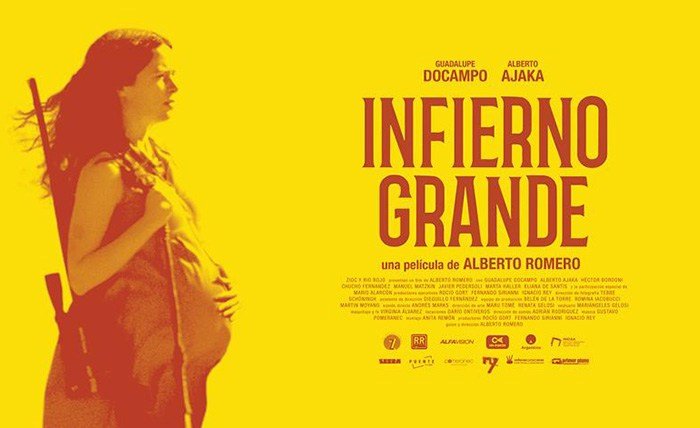BIG HELL: A CROSSROAD OF GENDERS AND LANGUAGES - REVIEW

Naicó today is just a name. He once knew how to be a small Pampas town, with a police station and railway station; When the train stopped passing by, people began to emigrate. In the 2010 census only 3 inhabitants were counted in the place. It is not far from Santa Rosa, where La Pampa is still wet and green. But in the imaginary of Big Hell Naicó is a desert ghost town, almost Patagonian, birthplace and childhood of Maria, the protagonist of this story. A small town teacher.
Maria is pregnant and has a dominating husband, who manipulates and knows how to fear. And Maria fears him, but does not paralyze; Think about leaving, process your transfer to a school in another town. One more discussion, fear, a shotgun with which they struggle and a bullet that escapes ...
Big hell is Maria's long road escaping to Naicó, the place from where she left as a child, who knows how and under what circumstances. Throughout his escape he encounters characters that maybe are real, or maybe not. They are local Indians, or so. Maria goes to Naicó, although many tell her that it is dangerous, that at night there are inexplicable lights that are a ghost town.
Little can be told about the story without revealing secrets, which the spectator will surely know as the film progresses, but one thing we can reveal, because the film does so from the beginning: María's child will be born, and we know it because It is he who carries out the story of the episode of his mother's escape, with him in his bosom.
The additional value that Alberto Romero, its director, brings to Big Hell, is the harmonious handling of language crossing. The film begins with a gender issue, such as moral and physical violence against women, continues as a typical road movie through dusty roads, continues with fantastic elements and has a strong western final imprint. It is a realistic film with fantastic notes, all at the same time. The camera has a look that produces discomfort, anxiety and sometimes restlessness. It is fiction with documentary techniques. A recognition for the photography work of Tebbe Schonning.
The music of Gustavo Pomeranec is another of the successes that contribute to the final product, almost all composed of chords and arpeggios that carry the ear, in the same sense as the eye, towards the extraordinary final outcome.
Alberto Romero is a screenwriter and director. It is part of the group of directors Puente Films. This is his first feature film but he was co-writer of several films.
Guadalupe Docampo's performance deserves a special mention, especially as regards her body work with pregnancy, her internalization of fear and the tempo she gave the character. Very good work
In short, Infierno Grande is an Argentine film, made by lung, with a low budget, carried out by artists who will surely talk ... as long as they can get financing and stay with us. So be it.
Hello, @carredaniel89. Thank you for using the realityhubs tag. This is a nice review. However, I have a few suggestions for you.
That's it. Thank you again and I look forward to seeing your next review.
Cheers!
RealityHubs Mod
Congratulations @carredaniel89! You have completed the following achievement on the Steem blockchain and have been rewarded with new badge(s) :
You can view your badges on your Steem Board and compare to others on the Steem Ranking
If you no longer want to receive notifications, reply to this comment with the word
STOPVote for @Steemitboard as a witness to get one more award and increased upvotes!